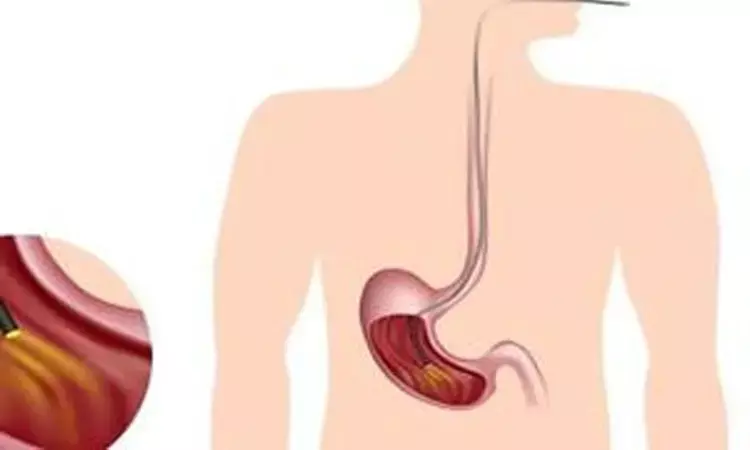- Home
- Medical news & Guidelines
- Anesthesiology
- Cardiology and CTVS
- Critical Care
- Dentistry
- Dermatology
- Diabetes and Endocrinology
- ENT
- Gastroenterology
- Medicine
- Nephrology
- Neurology
- Obstretics-Gynaecology
- Oncology
- Ophthalmology
- Orthopaedics
- Pediatrics-Neonatology
- Psychiatry
- Pulmonology
- Radiology
- Surgery
- Urology
- Laboratory Medicine
- Diet
- Nursing
- Paramedical
- Physiotherapy
- Health news
- Fact Check
- Bone Health Fact Check
- Brain Health Fact Check
- Cancer Related Fact Check
- Child Care Fact Check
- Dental and oral health fact check
- Diabetes and metabolic health fact check
- Diet and Nutrition Fact Check
- Eye and ENT Care Fact Check
- Fitness fact check
- Gut health fact check
- Heart health fact check
- Kidney health fact check
- Medical education fact check
- Men's health fact check
- Respiratory fact check
- Skin and hair care fact check
- Vaccine and Immunization fact check
- Women's health fact check
- AYUSH
- State News
- Andaman and Nicobar Islands
- Andhra Pradesh
- Arunachal Pradesh
- Assam
- Bihar
- Chandigarh
- Chattisgarh
- Dadra and Nagar Haveli
- Daman and Diu
- Delhi
- Goa
- Gujarat
- Haryana
- Himachal Pradesh
- Jammu & Kashmir
- Jharkhand
- Karnataka
- Kerala
- Ladakh
- Lakshadweep
- Madhya Pradesh
- Maharashtra
- Manipur
- Meghalaya
- Mizoram
- Nagaland
- Odisha
- Puducherry
- Punjab
- Rajasthan
- Sikkim
- Tamil Nadu
- Telangana
- Tripura
- Uttar Pradesh
- Uttrakhand
- West Bengal
- Medical Education
- Industry
Urgent Endoscopy for Upper GI Bleeding does not lower mortality, finds NEJM study

Researchers have found that there was no observed benefit of Urgent Endoscopy for Upper GI Bleeding in a new study.
Gastrointestinal bleeding is the most common gastrointestinal diagnosis in which patients are subjected to endoscopy because endoscopic findings predict risk and guide management.
It is recommended in general that patients with acute upper gastrointestinal bleeding undergo endoscopy within 24 hours after gastroenterology consultation. The role of endoscopy performed as an emergency measure within 24 hours has not been adequately defined.
Endoscopy performed within 6 hours of consultation for acute upper gastrointestinal bleeding does not appear to be better than slightly later endoscopy, according to a study in the New England Journal of Medicine.
Researchers evaluated whether urgent endoscopy improves outcomes in patients predicted to be at high risk for further bleeding or death.
Over 500a patients with overt signs of acute upper gastrointestinal bleeding and a Glasgow–Blatchford score of 12 or higher (scores range from 0 to 23, with higher scores indicating a higher risk of further bleeding or death) were randomly assigned to undergo endoscopy within 6 hours (urgent-endoscopy group) or between 6 and 24 hours (early-1endoscopy group) after gastroenterology consultation. The primary endpoint was death from any cause within 30 days after randomization.
The researchers found that the primary outcome -the rate of 30-day all-cause mortality — was similar in the two groups, roughly 7 to 9%. The incidence of further bleeding was also roughly similar between groups.
It was therefore concluded that patients with acute upper gastrointestinal bleeding who were at high risk for further bleeding or death, endoscopy performed within 6 hours after gastroenterology consultation was not associated with lower 30-day mortality than endoscopy performed between 6 and 24 hours after consultation.
The available evidence suggests that most patients hospitalized with upper gastrointestinal bleeding need not be rushed to immediate endoscopy.
For further reference log on to:
N Engl J Med 2020; 382:1299-1308
Dr Kamal Kant Kohli-MBBS, DTCD- a chest specialist with more than 30 years of practice and a flair for writing clinical articles, Dr Kamal Kant Kohli joined Medical Dialogues as a Chief Editor of Medical News. Besides writing articles, as an editor, he proofreads and verifies all the medical content published on Medical Dialogues including those coming from journals, studies,medical conferences,guidelines etc. Email: drkohli@medicaldialogues.in. Contact no. 011-43720751


